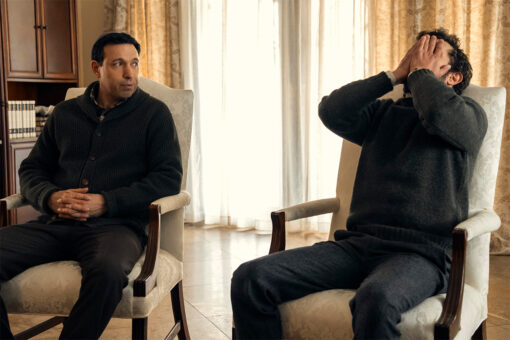In the center of London, directly across the street from the British Museum, I was on a walk to the library when I saw a bright blue coffee shop with an irresistible name: Cafe Babka. To me, babka was a treat when visiting family in New York, or Boynton Beach, Florida, but catching a (literal) whiff of it in London, I was struck dumb. As it turns out, this cafe is known for multiple flavors of babka (chocolate-hazelnut, a sort of Nutella babka, is their specialty), and they are far from the only babka game in town.
In addition to the traditional Ashkenazi-style bakeries and kosher restaurants you can find in North London, babkas of all shapes and sizes have been making their way to Moishe’s in the famous Borough Market, chain coffee shops like Oree and Gail’s, and beyond. At first I thought this was just a London quirk (perhaps the UK’s new Prime Minister Keir Starmer and his Shabbat dinners were somehow involved?), but the truth is even better than that: On both sides of the Atlantic, “hipster babka” is having its moment.
Think Nutella-inspired babka is interesting? Just wait until you get a look at the offerings at Babka Bailout, a Jersey City enterprise that offers sweet and savory babkas, including some flavored with ube, Reese’s Pieces and rainbow breakfast cereal – although if you’re not in the mood to try something as out-of-the-ordinary as a brie and guava babka, chocolate and cinnamon are also available.
Meanwhile, social media darling and food critic Chris Caresnone brought crucial babka awareness to a Gen Z audience after getting hold of a particularly lovely-looking cinnamon one, and making a viral video where he says that Jewish people cannot “gatekeep” the babka, as such deliciousness belongs to people of all faiths and backgrounds. Toronto’s XO Bisous even made a response, showing off the chocolate twist in their homemade babka, with a side of reassurance that “we don’t gatekeep.” Breads Bakery in New York takes inclusivity a step further, posting recipes for patrons to try their hand at recreating the outlet’s famous classic chocolate babka.
What’s brought us to this scrumptious moment of babka bounty? While some of the “hipster babka” outlets, like Babka Bailout and Moishe’s, are founded and captained by those who grew up with babka, and even a large chain like Gail’s has an Israeli co-founder whose baking experiences influenced the menu, this hardly seems to explain why it’s having such a moment.
As with so much these days, the pandemic may have something to do with it. We’ve all heard about lockdown sourdough, but why not lockdown babka? That was the thinking behind Babka Bailout, as it happens, and the Breads Bakery recipe seems to be begging for a TikTok-friendly recipe video. But also, with remote work gaining popularity over the past few years, what better thing to nibble at while typing away in a coffee shop than a dense, satisfying, not-too-sweet fresh-baked babka? Heartier than many of the commonly-found coffee shop pastries, with endless possibilities for the recipe to accommodate food sensitivities and preferences, a slice (or knot, as Oree makes) of babka is a perfect workday treat.
There is actually some controversy surrounding the origins of the first hipster babkas. It’s generally agreed that the original babkas hailed from Poland and Ukraine in the early 19th century, as a means of using up leftover challah dough, and that American Jews first had the innovation of adding chocolate, but the modern versions have several chefs scrambling to take credit for them.
Perhaps the chefs have the wrong idea. Scrambling to be babka innovators strikes me as almost missing the point. Babka, even the kind with fruity pebbles in it, is comfort food. Part of its appeal is linked to nostalgia – whether that’s for the infamous “Seinfeld” episode where a cinnamon babka is described as “lesser” than its chocolate counterpart, or, in my case, for 3Gs in Delray Beach with my grandparents, and Zingerman’s in Ann Arbor during college. Maybe lifelong babka enthusiasts haven’t talked about it much, but it’s not because we’re gatekeeping – it’s because who even realizes that their childhood comfort desserts need an evangelist?
I’m glad someone realized, though, in the case of the babka. Both because it’s nice to see a traditional Ashkenazi dish get the spotlight it deserves, and because, well, more babka in the spotlight is just plain “more babka,” which is always sweet to hear.



